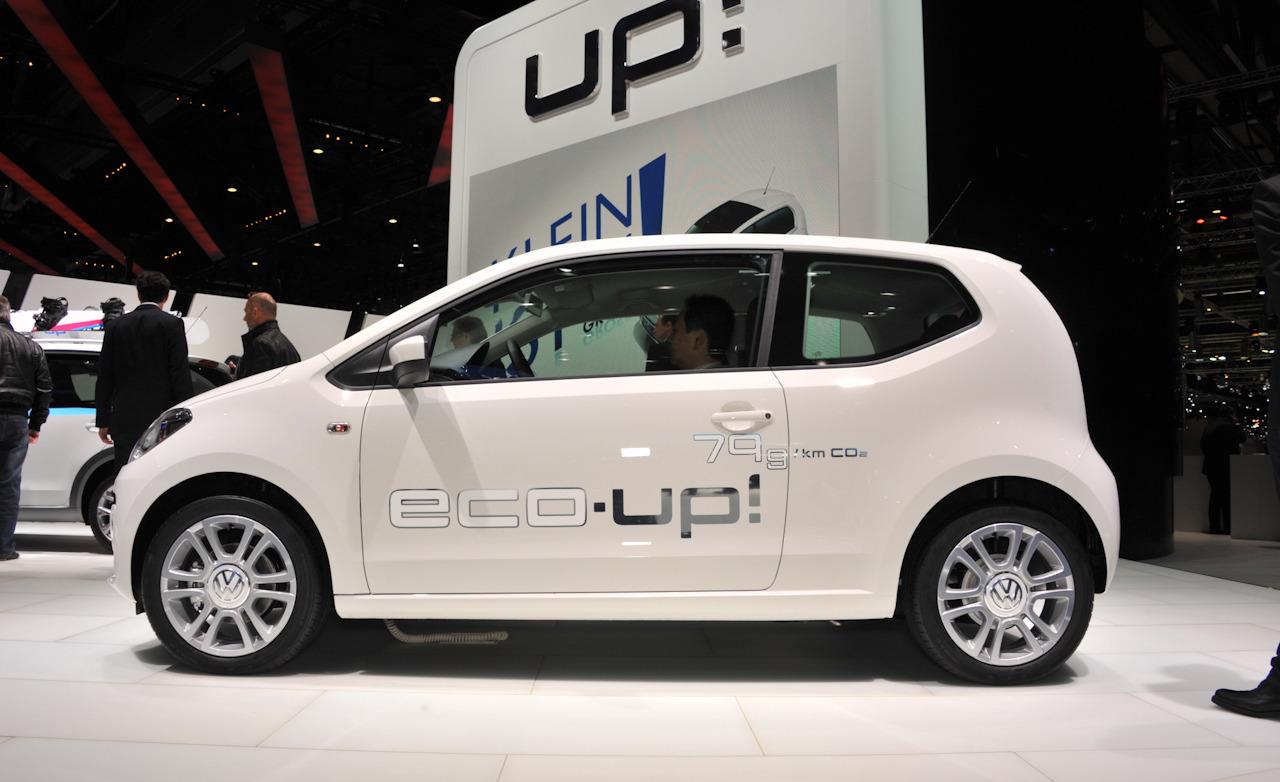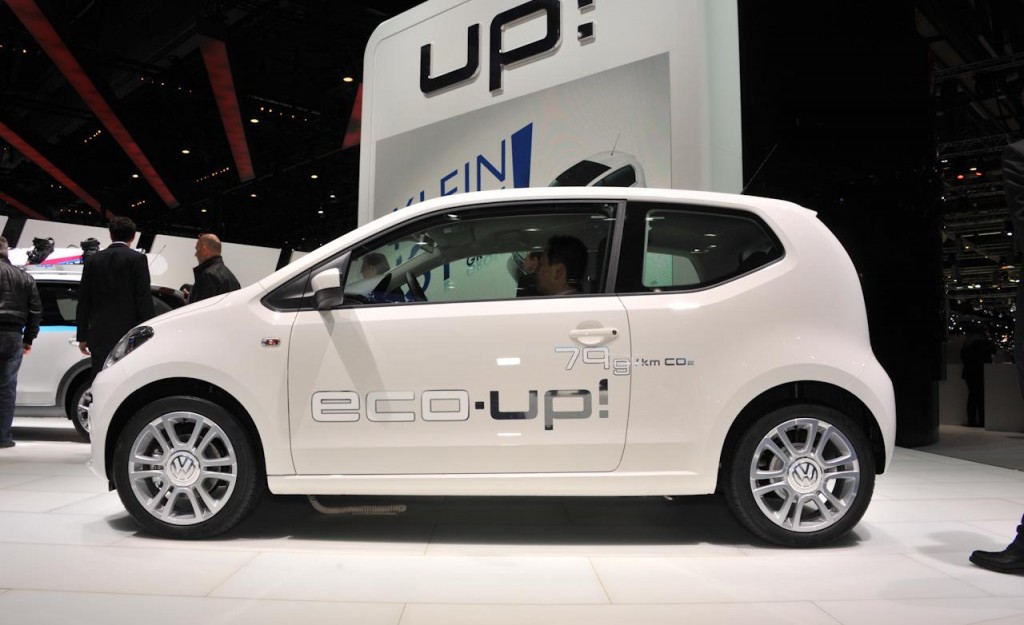The Volkswagen Eco Up! is here

A new natural gas-powered Volkswagen Up! has just been launched with the somewhat lofty claim from the German carmaker that it is the world’s most fuel-efficient natural gas passenger car in the world.
The Eco Up! features a newly developed version of the 1.0-litre three-cylinder engine found in the standard Volkswagen Eco Up! – capable of generating 50kW of power and 90Nm of torque while only using 2.9kg of compressed natural gas per 100km – the equivalent to emissions of 79 grams of CO2 per kilometer.
We’re obviously not talking about a racing car here, the Eco Up! reaching 100km/h from a standstill in a sluggish 15.8 seconds but it does have a respectable top speed of 168 km/h.
It is important to note that the Eco Up! can also be powered by biomethane obtained from plant by-products, as well as the more conventional petroleum.
There are two natural gas tanks are located under the floor that make up a total volume of 71 litres – or 11 kilograms of CNG, and there’s also a 10-litre petrol reserve tank, just in case you run out of CNG and you’re nowhere near a gas station. The Eco Up! has reduced CO2 emissions by 24 percent compared with petrol engines when it runs on pure natural gas.
When works with pure biomethane the vehicle will emit up to 97 percent less CO2 which when compared with a ‘well-to-wheel’ analysis – meaning from raw materials sourced to the final drive unit – it is comparable to cars that work with fuel cell technology or pure battery-powered electric vehicles.
Using natural gas is nothing new for Volkswagen, they’ve been equipping cars with these types of drives since the 1990. This worked as a retrofit before they released the first new car model that was designed to work with natural gas in 2002, the Volkswagen Golf Estate 2.0 BiFuel.

















